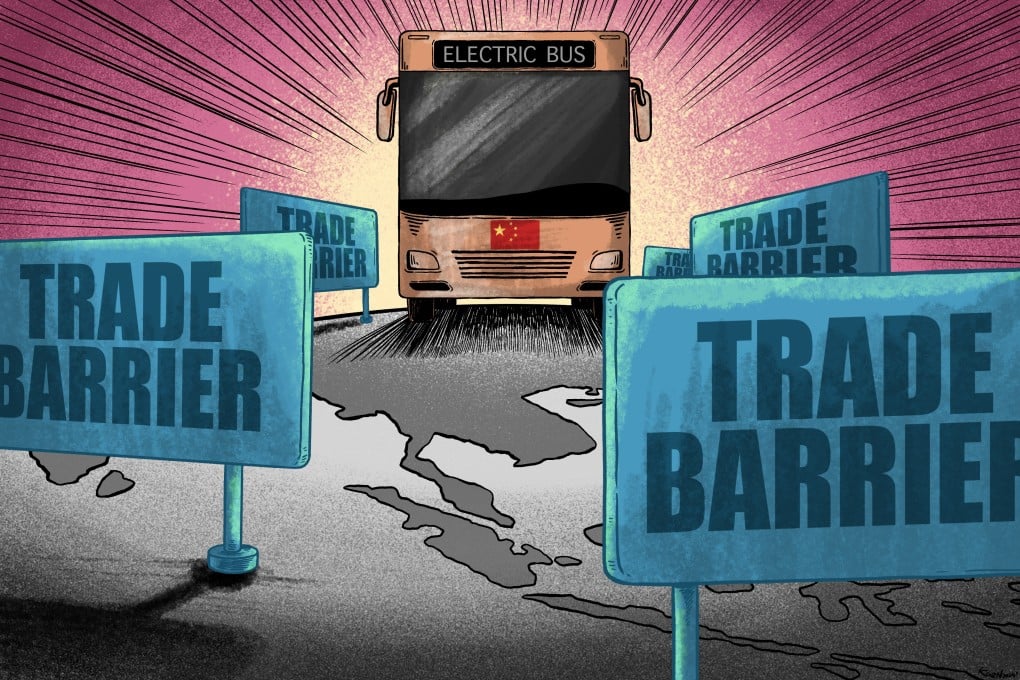Electric buses: can 100% tariff pain kill China’s resolve to dominate global market?
As China’s market matures, exports hold the key to future profitability for Yutong, Foton and peers in rivalry with European electric-bus producers

In the first of a three-part series on electric vehicles (EVs), Eric Ng looks at how China’s dominant position in commercial EVs such as electric buses and coaches hold up amid rising geopolitical tension and trade protectionism.
Kent Chang, CEO of Asia-Pacific at Yutong Bus, China’s and the world’s largest bus and coaches maker, has been busy courting new customers. After a trade show in Chile in August and Australia in September, he is next bound for the Philippines and Thailand.
He is not alone. At the biennial National Coach and Bus show in Brisbane last month, Chinese peers like King Long United Automotive Industry and Foton Motor Group were also in the mix. BYD, the world’s largest electric-vehicle maker, also presented its fleet. Together, their prominence epitomises China’s leadership in the electrification of public transport.
In one decade, China has replaced 80 per cent of its public buses with a fleet powered by electricity and hydrogen fuel cells. The nation’s biggest manufacturers are now seeking to replicate the success globally, including in some of the more hostile markets. It will not be a stroll, amid growing trade barriers and protectionist measures in North America and Europe.
As China’s domestic market matures, overseas markets are key to future profitability. At stake are multibillion-dollar programmes by various governments to phase out diesel- and gas-powered buses. Rivals like Volvo Group and Scania of Sweden are also eyeing these contracts.
